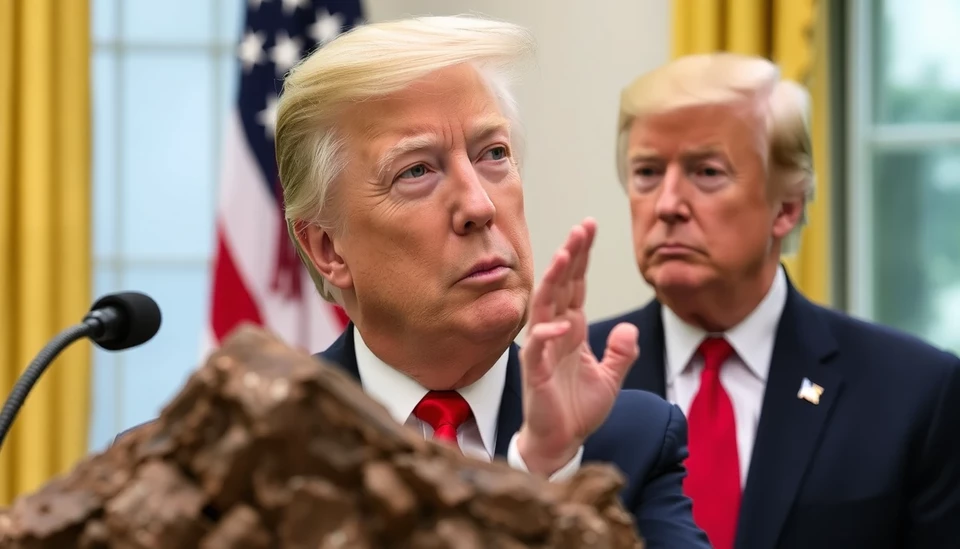
In a significant move that underscores the escalating tensions surrounding global trade and resource management, former President Donald Trump has initiated an investigation into critical minerals, with the intention of potentially imposing new tariffs. This strategic probe primarily targets the minerals essential for advanced technologies, including those used in electric vehicles and renewable energy systems, which have become increasingly vital in today's economy.
The former president's announcement comes in the wake of heightened scrutiny on mineral supply chains and a growing awareness of the United States' reliance on foreign sources for crucial materials. His administration has long condemned excessive dependence on overseas suppliers, particularly from rival nations, for critical minerals. The investigation aims to evaluate the current status of the domestic mineral supply and identify vulnerabilities that may need to be addressed through legislative and tariff measures.
Trump's team has emphasized that the goal of the investigation is not merely to prepare for potential tariffs but also to promote national security and economic resilience. By assessing the minerals deemed critical, the administration hopes to bolster domestic production capabilities and reduce reliance on imports, particularly from countries like China, which dominate the market.
A senior official involved in the initiative commented on the urgency of the investigation, stating, “We are in a race to secure our supply chains. It is crucial that we ensure the United States can produce the minerals needed for our future.” The ongoing evolution of industries focused on technology, clean energy, and defense underscores the pressing nature of this inquiry.
Industry experts have mixed feelings about the potential tariffs. While some argue that they could help stimulate domestic mining and production, others warn that new tariffs might provoke retaliatory actions from trading partners and drive up costs for manufacturers dependent on imported minerals. This could, in turn, affect consumer prices in various sectors, including automotive and electronics.
Currently, the U.S. targets around 35 minerals as critical, which include lithium, cobalt, and rare earth elements. These minerals are crucial for a wide array of products, from smartphones to batteries for electric vehicles and even military equipment. As the Biden administration pivots towards a green economy, the spotlight on the critical minerals supply chain has intensified, and Trump's probe could create a complex and uncertain landscape for both domestic and international stakeholders.
As the investigation progresses, it will reflect broader geopolitical tensions and economic strategies that shape the future of resource management around the globe. The outcomes could have far-reaching implications not only for U.S. industries but also for international commerce and relations.
In conclusion, as Trump navigates this critical issue, observers will be closely monitoring the developments, with many questions lingering about the balance between protecting domestic industries and maintaining healthy international trade relationships.
#Trump #CriticalMinerals #Tariffs #USTrade #ElectricVehicles #RenewableEnergy #NationalSecurity #Geopolitics
Author: Laura Mitchell




